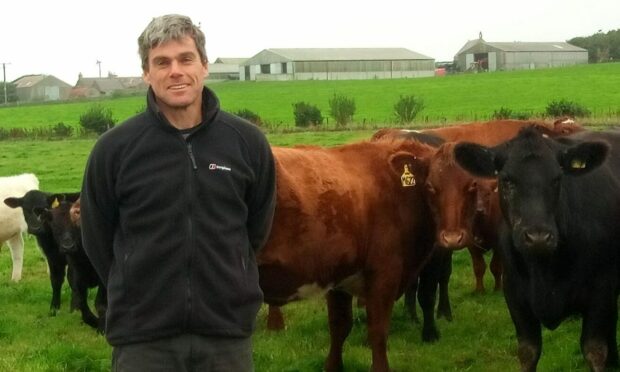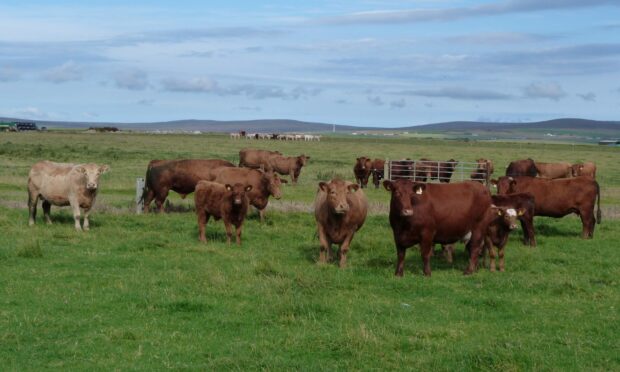Orkney has been declared free of Bovine Viral Diarrhoea (BVD) and the islands’ 550 cattle producers hailed for producing “a model” for the rest of Scotland.
Official records show the last animal infected with BVD was removed on March 4 2020, resulting in Orkney being BVD-free for two years.
The achievement, confirmed by Scotland’s chief vet, Sheila Voas, is the result of a 20-year campaign by local farmers to eradicate the devastating disease.
Orkney has the highest density of cattle in Europe, with 28,000 breeding cows on 247,000 acres as well as 16 dairy herds – making livestock the cornerstone of the economy
The eradication scheme has been masterminded since 2001 by the Orkney Livestock Association (OLA) with initial support funding from Orkney Islands Council.
OLA chairman, David Scarth, who farms 100 commercial and 50 pedigree Beef Shorthorn cows at Twatt Farm in Birsay, quoted a letter from the Scottish Government which said the organisation’s successful BVD control “served as a model for the rest of Scotland’s cattle keepers”.
He added: “Orkney is proud to give assurance to our cattle buying customers, who travel across the Pentland Firth, that every beast on offer is definitely free of BVD.”
In the first two years of the OLA scheme, 378 persistently infected (PI) cattle were identified and removed, which reduced the cycle of infection.
The OLA says that by spring 2007, over 80% of Orkney herds had achieved BVD Accredited Status and figures from the Orkney SAC office showed profits for some farms had increased by up to 30% in six years.
The organisation added: “Herds were also weaning an average of between three and four extra calves a year – resulting in a total of 1,500 to 2,000 additional head of cattle per annum for the Orkney economy.”
However, Mr Scarth insists island farmers are not complacent.
He said: “In the past we’ve learnt how easy it is to unintentionally re-introduce BVD, so strict bio-security and monitoring of any cattle brought into Orkney, will continue.”
BVD is widespread throughout the world and regarded by vets as the most significant cattle disease in Europe and North America.
If the foetus of non-immune in-calf females is infected, possible consequences include abortion, infertility, reduced milk yield and still-born or deformed calves. Live PI calves are incurable virus super spreaders.
The virus can also suppress the immune system of other cattle in the herd, reducing their resistance to numerous serious and costly health challenges.
Scotland’s industry-led BVD Eradication Scheme has been operational since 2010.

